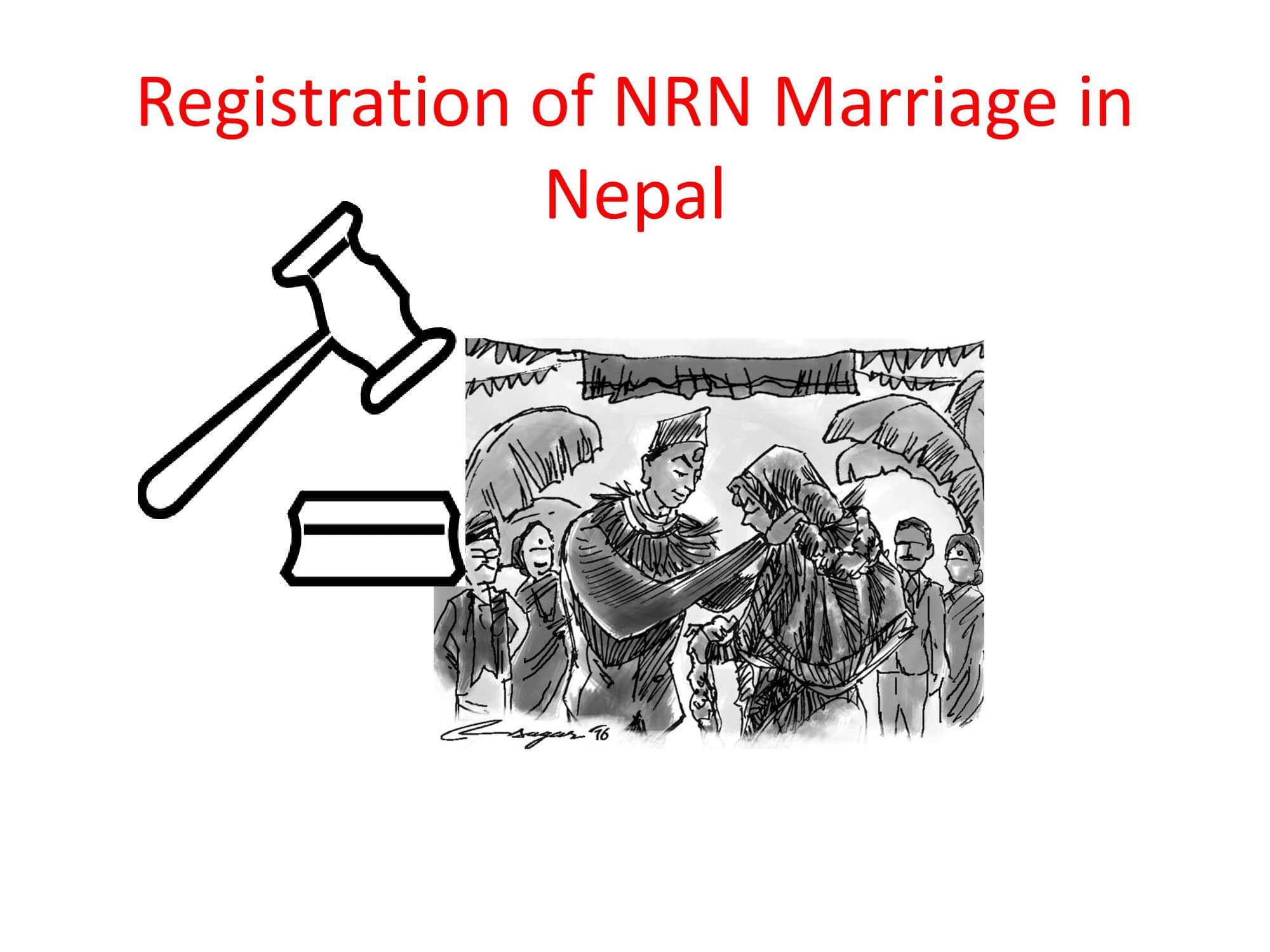- info@mijarlawassociates.com.np
- 9841114443
Q/A about NRN Marriage in Nepal

- Who are NRNs'?
Answer: NRNs' are those Nepali nationals who are living in a foreign country after obtaining citizenship of that foreign country. The full form of 'NRN' is Non-Resident Nepali.
The NRN Act categorizes NRNs into two types :-( I.) Foreign citizens of Nepalese origin holding citizenship of countries other than the member states of the South Asian Association for Regional Cooperation (SAARC), and
(II) Those Nepali citizens who are residing in foreign countries outside of the SAARC state.
- What are NRN marriages?
Answer: NRN (Non-Resident Nepali) marriage is defined as that form of marriage where the marriage is a union between Nepali citizens from Nepal, and if one of the partners (a man or woman) has obtained a foreign passport and citizenship, a different provision needs to be followed, and the procedure applicable in such a case is similar to that applicable to foreign citizens.
- How can marriage with NRNs be registered?
Answer: The marriage with NRNs can be registered in the District Court of the person's residence. A marriage certificate can be issued and will help in resolving disputes in a variety of ways. The person must be sure of her or his marriage being registered before leaving for overseas with their NRN's wife or husband.
- Can NRNs get married in Nepal?
Answer: Yes, of course, as per the requirements provided under the National Civil Code, 2074, the NRN can get married in Nepal and the age of a boy or girl is 20, the perfect age for marriage.
- What are the common NRN matrimonial disputes and issues?
Answer: The common NRN matrimonial disputes and issues are listed below:-
- One of the major disputes among NRNs is that those having NRN marriages can form extramarital affairs that lead to mistreatment between them, which leads to their divorce of in foreign counties.
- Another major issue is that the NRN bridegroom marries a Nepali girl, accepts all cash dowry from her, and departs for a foreign country by leaving his wife behind in Nepal.
- Another evolving new issue is a Nepali girl accepting the marriage proposal from NRNs and moving with him after having a court marriage with him, and after arriving in a foreign country giving the divorce to him and staying alone as she uses NRNs as a ladder to go America, Australia, etc.
- Can NRNs get divorced in a foreign country?
Answer: Yes, couples married in Nepal and residing in a foreign country with their husband or wife may seek divorce in the foreign country.
 Nep
Nep En
En